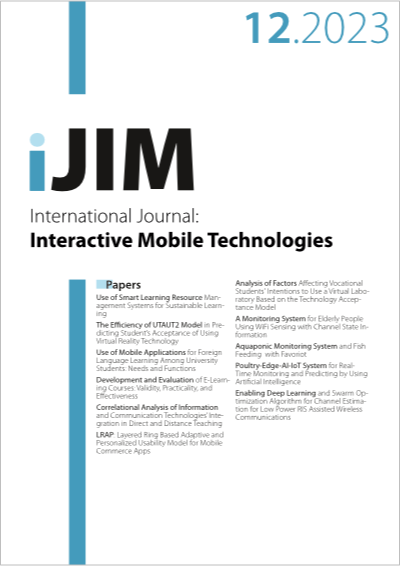Development and Evaluation of E-Learning Courses
Validity, Practicality, and Effectiveness
DOI:
https://doi.org/10.3991/ijim.v17i12.40317Keywords:
ICT and e-research, innovation in education, designed and developed, e-learning, modulesAbstract
This study attempts to develop a reliable, practical, and efficient process for developing online and distance courses. The study aims to develop e-learning online and distance education courses. ICT and e-Research course development processes have shown significant learning opportunities and outcomes. A substitute for raising these opportunities is the need for innovative research in education while implementing online and distance modes of learning and teaching. Subscribing research and development research methodology, the study aims to produce e-learning instructional materials using a three-stage development model. The course, along with the learning strategy, the learning tools, the assessment tools, and other components, are designed and developed using the Plomp model, a development research model. The research participants were forty-two 2021 Winter Batch MPhil in Educational Studies students and nine lecturers at Nepal Open University (NOU), Nepal. The descriptive analysis uses data analysis to explain the online course's validity, applicability, and effectiveness. Experimental research design was developed using the one-group pre-test post-test design methodology. The most important results are results of preliminary analysis, validity: average material validation is 0.885; average media validation is 0.885 and practicality: more than 71% (very practical). This article proposes a more comprehensive framework to design, develop, and implement online and distance courses in e-learning systems in higher education.
Downloads
Published
How to Cite
Issue
Section
License
Copyright (c) 2023 Niroj Dahal, Binod Prasad Pant, Bal Chandra Luitel, Jiban Khadka, Indra Mani Shrestha, Netra Kumar Manandhar, Roshani Rajbanshi

This work is licensed under a Creative Commons Attribution 4.0 International License.


